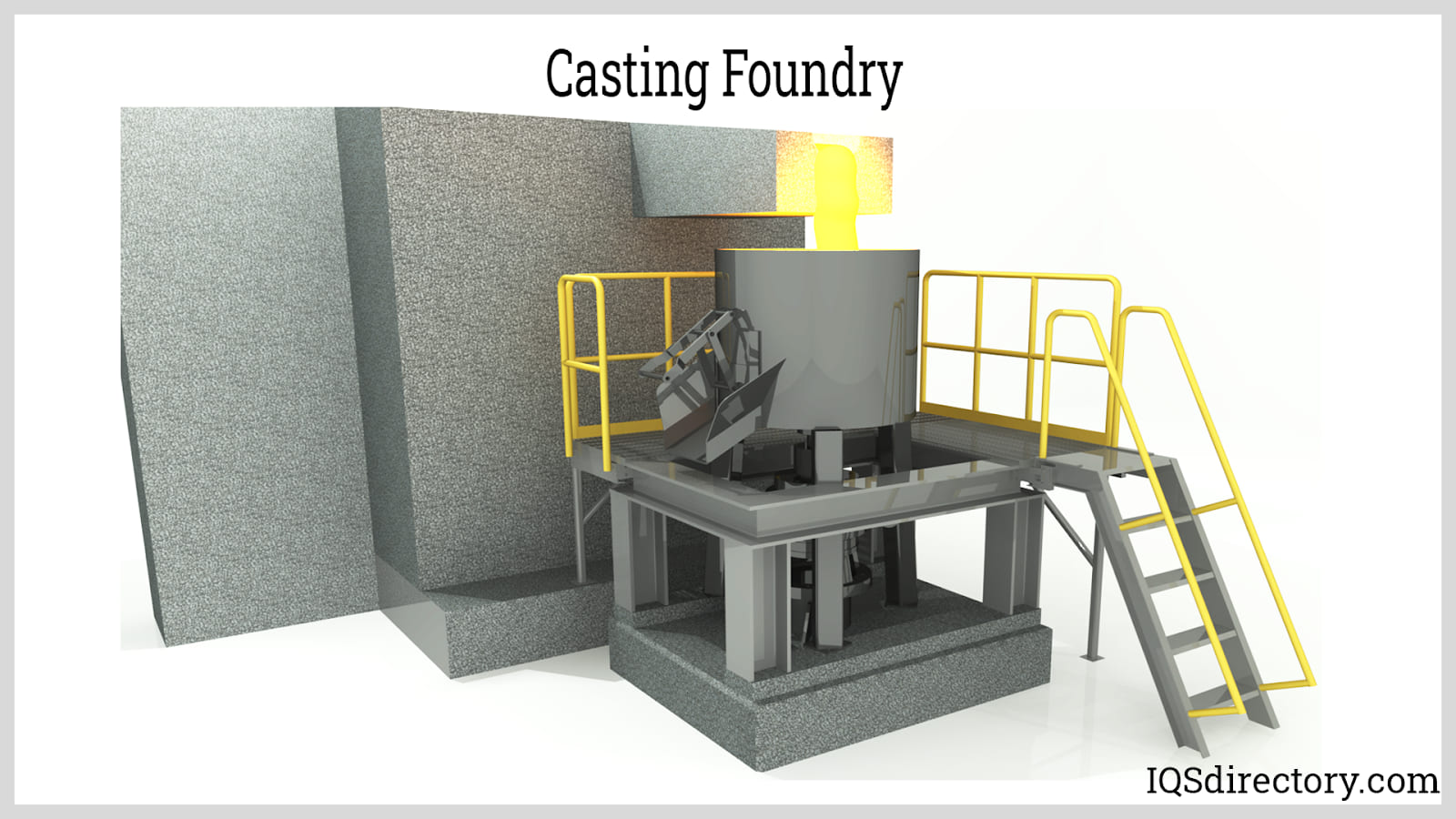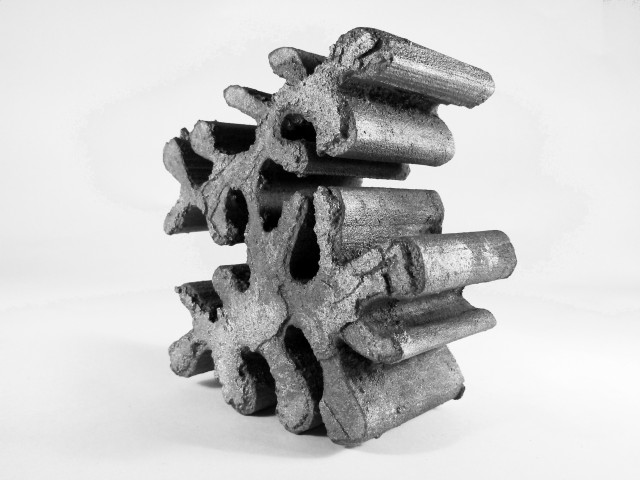Recognizing the Benefits and Innovations in the Aluminum Foundry Industry
The Aluminum Foundry industry plays a vital role in contemporary manufacturing. Its lightweight buildings notably enhance fuel effectiveness, specifically in automobile and aerospace sectors. Furthermore, Aluminum's resistance to corrosion assurances long life in various applications. As the market advances, advancements such as innovative recycling and additive production are reshaping production techniques. Discovering these innovations exposes not just the advantages however also the challenges in advance for Aluminum shops in a swiftly altering market.
The Lightweight Advantage of Aluminum
Aluminum's lightweight nature offers substantial advantages across numerous markets, especially in manufacturing and transport. Its reduced thickness enables for the production of components that are easier to deal with and install, causing lowered labor costs and improved efficiency. In the automotive field, lighter lorries add to improved gas economic climate and reduced emissions, aligning with international sustainability goals. Similarly, in aerospace, the usage of Aluminum decreases the total weight of airplane, which is vital for boosting performance and reducing functional costs.
Furthermore, Aluminum's light-weight buildings facilitate innovative styles that were formerly unfeasible with much heavier products. This adaptability allows manufacturers to produce intricate forms and frameworks while preserving architectural stability. On the whole, the lightweight benefit of Aluminum not just enhances product efficiency but likewise drives advancements in innovation and layout, making it a favored product in numerous applications.
Deterioration Resistance and Toughness
The Aluminum Foundry industry is renowned for creating materials with premium deterioration resistance, making them excellent for various applications. This building, combined with enhanced structural integrity, adds to the resilient efficiency advantages that Aluminum parts supply. Therefore, industries significantly rely on Aluminum to fulfill requiring ecological problems without compromising quality.
Superior Corrosion Resistance
While various metals face significant difficulties from environmental variables, Aluminum attracts attention for its superior deterioration resistance, making it a recommended selection in several applications. This property is largely as a result of an all-natural oxide layer that creates on the Aluminum surface area, supplying a barrier against moisture and harsh agents. Unlike various other steels that might rust or weaken with time, Aluminum preserves its stability even in harsh environments, such as seaside locations or industrial settings. Furthermore, its lightweight nature incorporated with deterioration resistance makes it perfect for applications in aerospace, automotive, and aquatic markets. Overall, Aluminum's extraordinary longevity not just improves product longevity but additionally minimizes upkeep prices, presenting a compelling benefit for customers and suppliers alike.
Enhanced Structural Stability
Designers and designers increasingly recognize the significance of boosted structural honesty in contemporary applications, where both deterioration resistance and longevity are essential. Aluminum alloys, known for their light-weight residential properties, also show outstanding resistance to rust, making them ideal for extreme atmospheres. The cutting-edge methods used in the Aluminum Foundry sector contribute significantly to generating components with improved sturdiness. Advanced casting procedures and alloy make-ups are customized to meet details efficiency needs, guaranteeing that frameworks can withstand extreme problems without jeopardizing honesty. Moreover, surface therapies and finishings boost the life-span of Aluminum products, even more reducing degeneration with time. This emphasis on improved structural honesty not only expands the usability of materials but also lowers upkeep costs, solidifying Aluminum's setting as a product of choice in numerous industries.
Lasting Performance Advantages
Lasting performance in Aluminum elements is largely attributed to their superior corrosion resistance and toughness. Unlike many metals, Aluminum naturally develops a protective oxide layer, which avoids corrosion and damage in different environments, including marine and industrial setups. This intrinsic residential property substantially expands the life-span of Aluminum items, decreasing upkeep and replacement prices. Additionally, the lightweight nature of Aluminum boosts its applicability across industries without compromising strength. The material's resistance to put on and tear also contributes to its dependability in demanding applications, making it an excellent selection for automobile, aerospace, and construction sectors. As industries progressively prioritize sustainability and longevity, Aluminum's efficiency benefits straighten with modern-day design demands, strengthening its function in innovative production processes.
Ecological Influence and Sustainability
 As the Aluminum Foundry market progresses, it increasingly prioritizes environmental effect and sustainability, recognizing the demand for responsible practices despite environment modification. Efforts to minimize waste and energy usage are at the leading edge, with several factories embracing reusing efforts to redeem Aluminum scrap. This not just reduces raw material use yet also significantly lowers energy expenditure, as recycled Aluminum requires just a portion of the energy contrasted to main manufacturing.
As the Aluminum Foundry market progresses, it increasingly prioritizes environmental effect and sustainability, recognizing the demand for responsible practices despite environment modification. Efforts to minimize waste and energy usage are at the leading edge, with several factories embracing reusing efforts to redeem Aluminum scrap. This not just reduces raw material use yet also significantly lowers energy expenditure, as recycled Aluminum requires just a portion of the energy contrasted to main manufacturing.Innovations in exhausts regulate technologies are being implemented to decrease air toxins, aligning procedures with stricter ecological policies. Factories are likewise exploring alternate energy sources, such as solar and wind, to power their facilities sustainably. By promoting partnership with stakeholders, the industry intends to develop innovative services that improve eco-friendly stewardship. Collectively, these efforts highlight a commitment to lowering the Aluminum Foundry's carbon footprint while advertising a circular economic situation within the manufacturing field.
Advanced Production Techniques
 Changing production processes, the Aluminum Foundry market is increasingly incorporating innovative manufacturing methods to improve performance and precision. Methods such as computer mathematical control (CNC) machining and additive manufacturing have become vital elements in maximizing manufacturing process. CNC machining enables high-precision part manufacture, considerably reducing material waste and manufacturing time. Additive production opens brand-new methods for intricate geometries and light-weight designs that were formerly difficult to accomplish.
Changing production processes, the Aluminum Foundry market is increasingly incorporating innovative manufacturing methods to improve performance and precision. Methods such as computer mathematical control (CNC) machining and additive manufacturing have become vital elements in maximizing manufacturing process. CNC machining enables high-precision part manufacture, considerably reducing material waste and manufacturing time. Additive production opens brand-new methods for intricate geometries and light-weight designs that were formerly difficult to accomplish.Additionally, the implementation of automation and robotics in Aluminum shops simplifies procedures, decreases human mistake, and improves worker security. These innovations help with an even more responsive production setting, making it possible for suppliers to adjust quickly to market demands. The assimilation of advanced simulation software even more improves the layout and testing phases, leading to exceptional product top quality. Jointly, these techniques not only enhance functional performance however likewise foster development, positioning the Aluminum Foundry industry at the forefront of modern production.
Advancements in Reusing Processes
The Aluminum Foundry market is not only progressing in producing strategies but is also making considerable strides in recycling procedures. Developments are arising to boost the performance of reusing methods, lowering energy intake and boosting sustainability. Advanced sorting innovations, such as automated optical sorting, make it possible for the identification and separation of Aluminum from various other materials with high accuracy. This results in a better of recycled Aluminum, which is vital for preserving the honesty of the last items.
Closed-loop recycling systems are being applied, enabling suppliers to recycle Aluminum scrap within their own production processes. This minimizes waste and advertises a round economic situation. Additionally, study into brand-new recycling strategies, such as hydrometallurgical processes, uses the possibility for recovering Aluminum from intricate waste streams. These advancements not only contribute to minimizing the carbon impact of the Aluminum Foundry market yet likewise bolster its financial feasibility in an increasingly ecologically aware market.
Applications Across Various Industries
Various sectors are increasingly identifying the versatility and benefits of Aluminum Foundry items, resulting in widespread applications throughout markets such as automotive, building, customer, and aerospace items. In the vehicle market, Aluminum spreadings add to lightweight lorry styles, boosting fuel effectiveness and performance. Aerospace manufacturers utilize Aluminum parts for their strength-to-weight ratio, essential for airplane frameworks and parts.
In construction, Aluminum is favored for its resilience and resistance to corrosion, making it optimal for home window frames, roofing, and structural assistances. Durable goods also profit from Aluminum Foundry products, as seen in cookware, electronic devices, and product packaging, where lightweight and recyclable materials are essential.
The flexibility of Aluminum Foundry techniques permits exact specifications and intricate styles, dealing with the diverse requirements of these sectors. Therefore, Aluminum Foundry Recommended Site products are ending up being important to modern-day manufacturing procedures throughout different markets.
Future Fads in Aluminum Foundries
As markets proceed to progress, Aluminum shops are poised to accept a number of vital patterns that promise to enhance efficiency and sustainability. One famous fad is the enhancing adoption of digital innovations, including automation and expert system, which enhance procedures and enhance quality assurance. Additionally, the push towards sustainable techniques is leading click to find out more shops to purchase reusing innovations, considerably lowering waste and power consumption.
 Another emerging pattern is making use of innovative alloys and materials, catering to the expanding need for light-weight and resilient components across numerous markets (Aluminum Foundry). Moreover, the combination of additive manufacturing strategies is anticipated to transform component style, supplying personalization and minimizing preparations
Another emerging pattern is making use of innovative alloys and materials, catering to the expanding need for light-weight and resilient components across numerous markets (Aluminum Foundry). Moreover, the combination of additive manufacturing strategies is anticipated to transform component style, supplying personalization and minimizing preparationsCollaboration with research institutions is also anticipated to drive innovation, as factories seek to establish new processes and materials. Aluminum Foundry. Collectively, these fads show a transformative future for the Aluminum Foundry market, straightening with wider goals of sustainability and efficiency
Regularly Asked Inquiries
What Are the Regular Costs Related To Aluminum Foundry Production?
The normal prices related to Aluminum Foundry production consist of raw materials, labor, energy, devices upkeep, and overhead expenses. These aspects collectively influence the total financial investment required for reliable Aluminum spreading procedures.
Just How Does Aluminum Contrast to Other Steels in Toughness?
Aluminum, while lighter than lots of metals, shows outstanding strength-to-weight proportions. Contrasted to steel, Aluminum is much less strong but offers exceptional deterioration resistance, making it a beneficial option in applications where weight and longevity are necessary.
What Security Steps Are in Location in Aluminum Foundries?
Security measures in Aluminum shops commonly include mandatory individual safety equipment, ventilation systems to control fumes, normal devices upkeep, training programs for employees, and adherence to rigorous safety and security laws to lessen risks connected with molten metal handling.
How Is Quality Assurance Managed in Aluminum Spreading Processes?
Quality assurance in Aluminum spreading procedures involves rigorous examinations at various phases, consisting of resources evaluation, procedure monitoring, and end product testing. Techniques such as statistical procedure control and non-destructive screening guarantee adherence to sector requirements.
What Certifications Are Necessary for Aluminum Foundry Suppliers?
The significance of qualifications for Aluminum Foundry vendors includes ISO 9001 for quality management, ISO 14001 for environmental administration, and industry-specific criteria like ASTM and SAE, guaranteeing compliance, safety, and reliability in manufacturing procedures.
The Aluminum Foundry market plays an essential duty in contemporary production. The Aluminum Foundry industry is renowned for producing materials with exceptional rust resistance, making them optimal for numerous applications. Revolutionizing production procedures, the Aluminum Foundry market is increasingly incorporating sophisticated manufacturing techniques to improve performance and accuracy. The Aluminum Foundry industry is not only progressing in making methods but is also making substantial strides in click this link recycling procedures. As markets continue to evolve, Aluminum shops are poised to welcome a number of essential trends that guarantee to boost performance and sustainability.